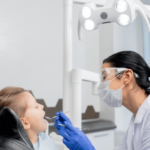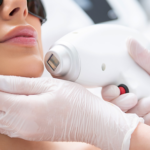Overcoming substance abuse is a remarkable journey that extends beyond initial treatment. Statistics show that 72.2% of adults in recovery consider themselves recovered, and 66.5% have overcome mental health challenges. These figures highlight the pivotal role of aftercare planning in solidifying rehabilitation gains and ensuring a smooth transition to life beyond treatment.
Aftercare serves as a bridge between intensive care and everyday realities. Without a structured plan, individuals may struggle to navigate challenges after leaving a supportive rehabilitation environment.
Navigating The Transition Phase
While the benefits of aftercare planning are undeniable, the transition from rehabilitation to everyday life can present a myriad of challenges. Common hurdles faced by individuals include:
- Reintegration Into Society: Adjusting to societal norms, responsibilities, and expectations after an intensive treatment program can be overwhelming.
- Managing Triggers: Encountering familiar environments, people, or situations that were once associated with substance abuse can trigger cravings and increase the risk of relapse.
- Rebuilding Relationships: Regaining trust and mending strained relationships with loved ones may require patience, open communication, and a commitment to personal growth.
To overcome these challenges, effective aftercare plans emphasize the importance of support networks, coping mechanisms, and setting healthy boundaries. By equipping individuals with the tools and strategies to navigate these obstacles, the chances of long-term recovery success are greatly enhanced.
The Power Of Support Systems
One of the cornerstones of successful aftercare planning is the establishment of a robust support system. Family, friends, and professional counselors play a vital role in providing:
- Emotional Support: Loved ones and peers who understand the recovery journey can offer empathy, encouragement, and a listening ear during difficult times.
- Practical Assistance: Support systems can help with logistical challenges, such as finding employment, securing housing, or accessing resources.
- Motivation And Accountability: Regular check-ins and encouragement from a support network can reinforce an individual’s commitment to sobriety and provide a sense of accountability.
Statistics emphasize the significance of support systems, with a study indicating that individuals who engage with their support networks have higher chances of sustained recovery.
Transitioning Into Professional Life After Rehabilitation
An effective aftercare plan is a meticulously crafted blueprint that serves as a roadmap to lasting recovery. Each component is carefully selected to address the unique needs and circumstances of the individual, ensuring a comprehensive approach to maintaining sobriety and overall well-being. For those in the Dayton, Ohio area, seeking support from reputable rehab centers in Dayton Ohio can be a valuable first step in creating an effective aftercare plan.
Ongoing Therapy
Continued counseling and therapy sessions are at the core of an effective aftercare plan. These sessions provide a safe and supportive environment for individuals to explore their thoughts, emotions, and experiences without judgment. Through ongoing therapy, individuals can:
- Process the underlying issues and triggers that contributed to their substance abuse
- Develop healthy coping mechanisms to manage cravings and stress
- Identify and address potential roadblocks to their recovery journey
- Gain valuable insights and tools for navigating challenges in everyday life
Therapy can take various forms, including individual counseling, group sessions, or family therapy, depending on the individual’s needs and preferences. Many inpatient drug rehab centers in Dayton Ohio offer ongoing therapy as part of their aftercare programs.
Support Group Meetings
Participation in support groups, such as Alcoholics Anonymous (AA) or Narcotics Anonymous (NA), plays a crucial role in aftercare planning. These groups offer a sense of community, accountability, and shared experiences that can be invaluable during the recovery journey. Through regular attendance and engagement, individuals can:
- Connect with others who understand the challenges of addiction and recovery
- Share their experiences, struggles, and triumphs in a non-judgmental environment
- Gain inspiration and motivation from the stories and achievements of others
- Develop a support network of peers who can offer encouragement and accountability
Support groups provide a constant reminder that individuals are not alone in their journey and that a community of others is available to lend a helping hand. Many alcohol rehab centers in Dayton Ohio can provide information on local support group meetings.
Lifestyle Changes
Aftercare planning extends beyond traditional therapy and support groups; it encompasses a holistic approach to lifestyle changes that nurture physical, mental, and emotional well-being. Incorporating healthy habits, such as regular exercise, a balanced diet, and sufficient sleep, can reinforce the foundations of recovery and reduce the likelihood of relapse.
Furthermore, exploring new hobbies and interests can provide positive outlets for personal growth, self-expression, and a sense of purpose. Whether it’s taking up a creative pursuit like painting or joining a recreational sports team, engaging in fulfilling activities can replace the void left by substance abuse and foster a more balanced, enriching life.
By addressing various aspects of an individual’s life, an effective aftercare plan creates a comprehensive framework for sustained recovery success. Detox centers in Dayton Ohio can often provide resources and guidance on incorporating lifestyle changes into an aftercare plan.
Fostering A Balanced And Comprehensive Lifestyle
Aftercare planning extends beyond traditional therapy and support groups. It encompasses a holistic approach to lifestyle changes that nurture physical, mental, and emotional well-being. Incorporating healthy habits, such as regular exercise, a balanced diet, and sufficient sleep, can reinforce the foundations of recovery and reduce the likelihood of relapse.
Moreover, exploring new hobbies and interests can provide positive outlets for personal growth, self-expression, and a sense of purpose. Whether it’s taking up a creative pursuit like painting or joining a recreational sports team, engaging in fulfilling activities can replace the void left by substance abuse and foster a more balanced, enriching life.
Embracing Technology For Ongoing Support
In today’s digital age, technology offers a wealth of resources to complement traditional aftercare methods. Mobile apps for sobriety tracking, online support groups, and telehealth services for therapy provide accessibility and convenience for those in recovery.
| Tool | Description |
| Mobile Apps | Sobriety tracking, daily motivation, and access to support communities |
| Online Support Groups | Virtual meetings and forums for peer support and shared experiences |
| Telehealth Services | Remote therapy sessions with licensed professionals |
While these tools should not replace in-person support and professional guidance, they can serve as valuable additions to an individual’s aftercare plan, offering readily available resources and support at their fingertips.
Conclusion: The Journey Continues
Recovery from substance abuse is a lifelong journey, and aftercare planning is an integral part of the process. A comprehensive aftercare plan serves as a roadmap, offering guidance and strategies for navigating challenges beyond rehabilitation. Embrace aftercare as a dynamic process, modifying your plan as circumstances evolve.
Lean on your support system, celebrate victories, and remain committed to a fulfilling, substance-free life. With the right aftercare plan, you have the tools to overcome obstacles and create a future of lasting recovery.
FAQs
1. What is the difference between aftercare and treatment?
Aftercare and treatment are distinct yet interconnected phases of the recovery journey. Treatment typically refers to the intensive, structured program within a rehabilitation facility, where individuals receive focused care and support to address their substance abuse issues. Aftercare, on the other hand, is the ongoing support and guidance that follows the completion of the initial treatment phase. It is designed to help individuals transition back to everyday life while maintaining sobriety and continuing their progress toward long-term recovery.
2. How long should aftercare last?
There is no definitive timeline for aftercare, as the duration can vary based on individual needs and circumstances. Some may require aftercare support for several months, while others may benefit from ongoing aftercare for years or even indefinitely. The key is to approach aftercare as a flexible and adaptable process, adjusting the level and type of support as needed throughout the recovery journey.
3. Can I modify my aftercare plan if my circumstances change?
Absolutely. Aftercare plans should be viewed as living documents that can and should be modified as an individual’s needs evolve or circumstances change. Regular reevaluation and adjustments to the aftercare plan are encouraged to ensure it remains relevant and effective. Whether it is adding new components, modifying existing ones, or seeking additional support resources, being proactive in adapting the plan can greatly enhance the chances of sustained recovery success.







